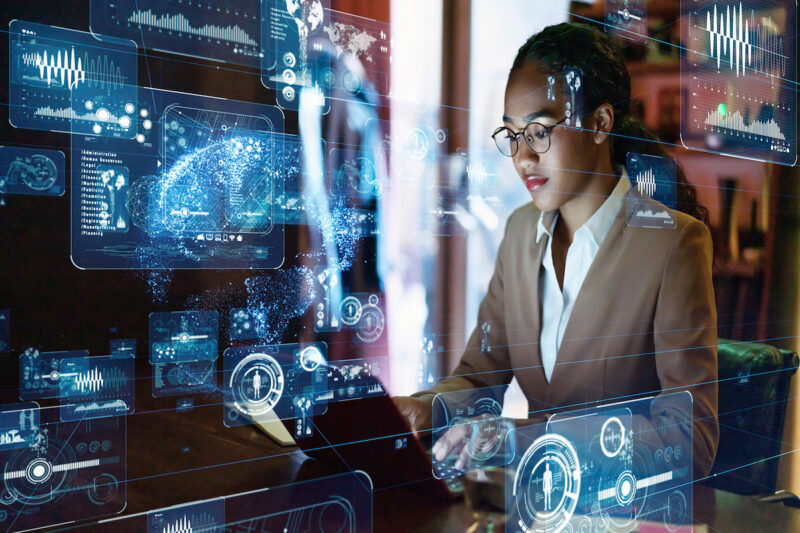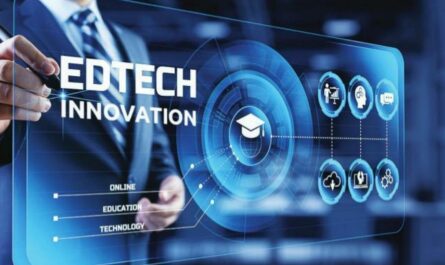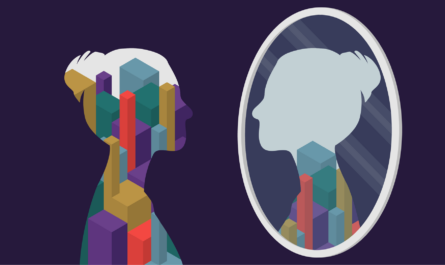A distinctive feature of modern society is the desire for informatization. One of the most relevant forms of informatization is introducing artificial intelligence (AI) into the daily life of society, including education.
Many researchers are interested in the problem of the potential of AI technologies in the educational process.
According to experts, there are several possible use cases: when presenting information, when watching educational videos, when solving assignments, when controlling students’ knowledge, as well as when modeling professional and educational situations.
If you want to learn more about how AI is used in education, please continue reading the article.
Page Contents
What Is Artificial Intelligence?
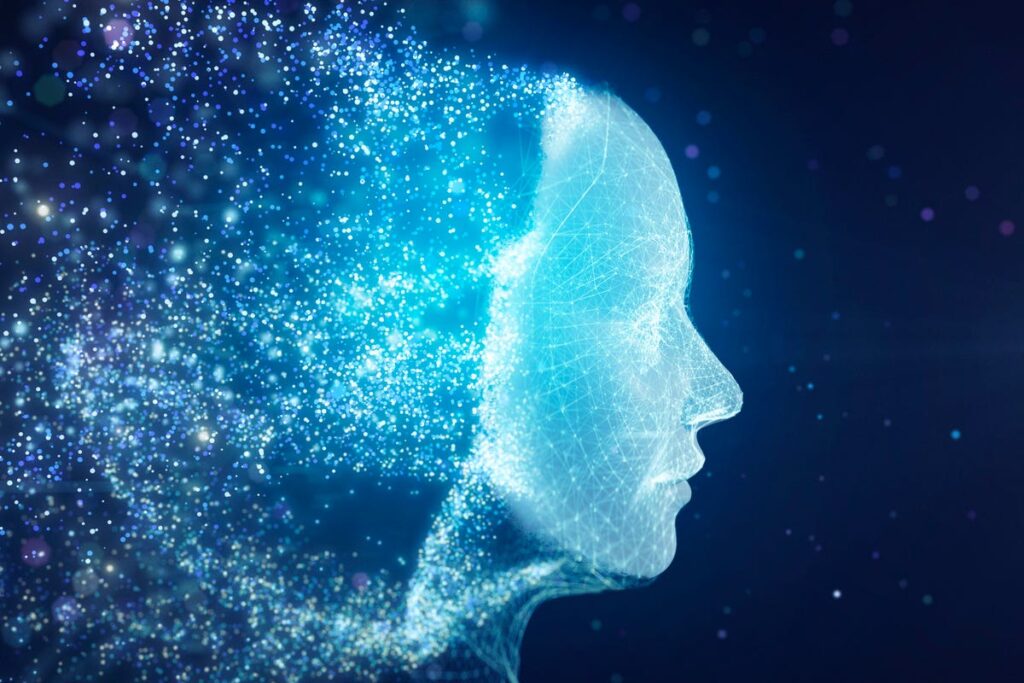
Artificial intelligence imitates human intelligence processes by machines, especially computer systems. A person uses various intellectual functions in their own activity (intuition, creativity, imagination, association, induction, deduction, calculation, search, etc.).
The creation of artificial systems that would realize these functions is the main task of artificial intelligence.
AI in Education: Main Areas of Application
Artificial intelligence has recently become widely used in the field of education. There are several areas of its application:
- Can be used in computer systems that imitate human behavior. For example, recommendations for shopping in online stores, Google translator;
- Allows paving the way for personalized adaptive education (learning systems built depending on the needs of students and their level of training);
- Enables consultation systems that enhance the student experience;
- Can be used for student assessment. An important advantage of using artificial intelligence in education is that it reveals the level of student performance. Fortunately, you can contact EduReviewer and improve your grades if necessary. The website is trustworthy because it provides high-quality educational services (tutoring, resume and CV writing, online courses, writing and editing, admission consulting, etc.) at affordable prices;
- Can enhance the capabilities of students with disabilities. The potential of AI in working with students with disabilities is enormous: describing the content of photographs for the blind, creating subtitles in videos for the deaf, etc.;
- Improves the capabilities of analytics in the field of learning, including measuring, collecting, analyzing, and interpreting information about learners and the context in which the educational process takes place;
- Increases ethical and moral concern. The AI system requires access to a large amount of information about students. So, the use of AI raises a huge number of ethical and moral issues that need to be addressed: information protection, consent to the use of personal information, subjects of access, possible errors;
- Changes in various aspects of academic life (transformation of libraries, academic research, communication with students, creation of books, external educational activities, etc.);
- Connection with the future of higher education. It will be inextricably linked with AI, and all the necessary subjects and courses will be adapted to the work performed by machines.
Examples of the Use of Artificial Intelligence Programs in Education
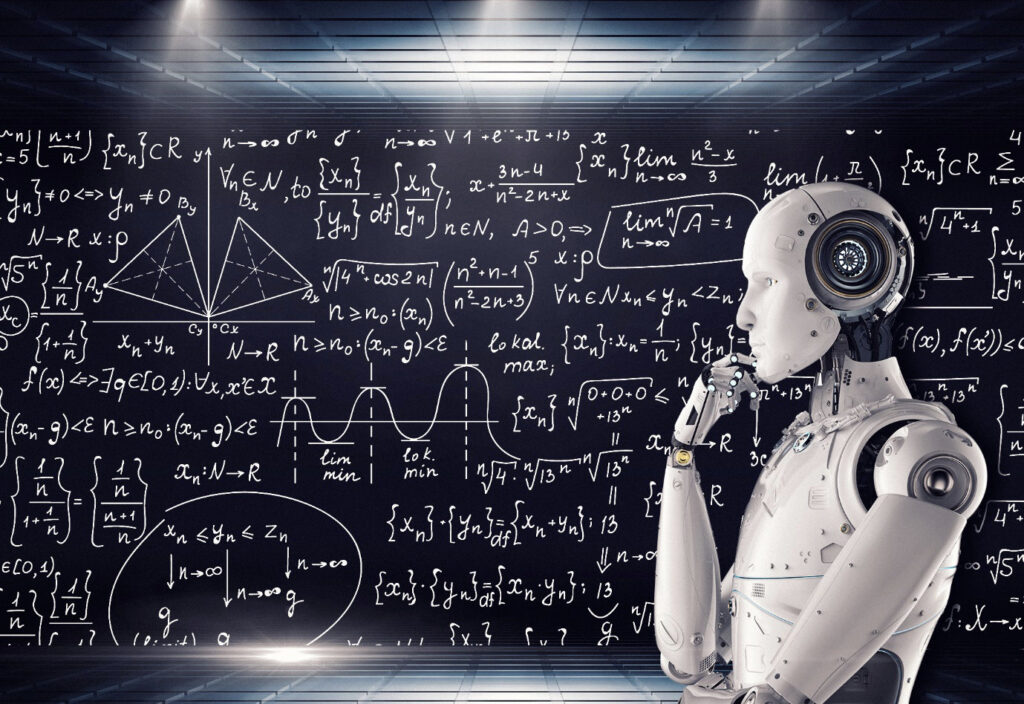
Try to consider the 8 unique examples below carefully. This will allow you to more fully understand the question, “How is AI used in education?”.
Automatic Assessment
A specialized computer program based on artificial intelligence mimics the behavior of a teacher grading essays written in an educational environment. It can also assess students’ knowledge, analyze their responses, provide feedback, and create individual learning plans.
Intermediate Learning Interval
Such a program double-checks the knowledge that students may have already forgotten. Its essence lies in the fact that AI keeps track of what and when it was studied. Thanks to this, it is possible to find out forgotten information and recommend repeating it.
Personalized Learning

Personalized learning refers to various educational programs in which the learning pace and learning approach is optimized for the needs of each student. Experience is based on learning preferences and the specific interests of different learners. Artificial intelligence will easily select the right pace for the student so that he can better master the program.
Adaptive Learning
It suggests that the AI can track each student’s progress and either correct the course or inform the teacher about material that the student does not understand.
Data Accumulation and Personalization
Many people know that AI can recommend the nearest cafes according to interests, depending on the geolocation of a person. The same technology can be applied when we learn, based on examples only from the area that interests us.
Proctoring
Distance learning usually involves remote examinations. However, it is necessary to monitor the independent performance of tasks. AI-based proctoring defense systems are great for this.
Virtual Assistants

Today, there are teacher assistants that can respond accurately and quickly to student inquiries thanks to built-in AI computers.
Feedback for Teachers
Teachers tend to evaluate each other. However, today it has become much easier than before. Chatbots with AI are increasingly being used. They can collect opinions through a conversational interface like a real interviewer. In addition, this program can find out the reasons for a particular opinion.
Challenges Associated with the Implementation of AI in Education
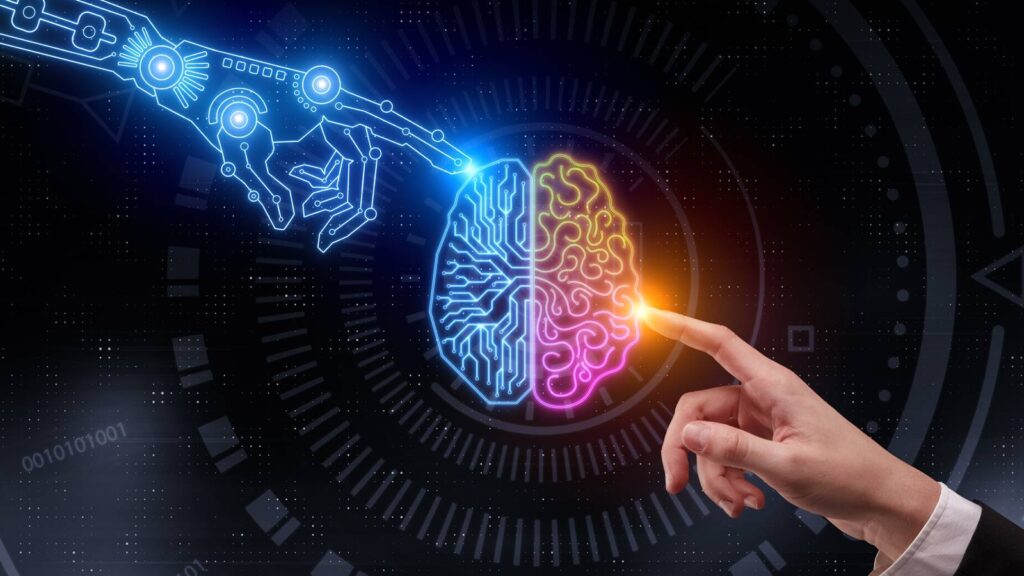
Among the main challenges associated with the implementation of AI in the field of education, we should highlight the following:
- Creation of a comprehensive public policy on AI in education for sustainable development;
- Ensuring the principle of fairness in the implementation of AI in education;
- Preparing teachers to work with AI and understanding the specifics of its application in education;
- Development of the quality of education and the closeness of the system with data;
- AI research priority in education;
- Ethical use of AI and transparency in the collection and use of data.
Conclusion
Artificial intelligence plays a vital role in education. It provides the ability to extract data from various sources, validate it, and analyze it using predictive analytics and machine learning tools.
The effective use of artificial intelligence, data, analytics, and machine learning makes the learning process more interesting by using technologies for immersive virtual environments. AI technologies increase the importance of the role of the teacher and expand educational opportunities.
In addition, artificial intelligence technologies solve the problem of personalization and adaptation of learning and make it accessible to students with disabilities.
